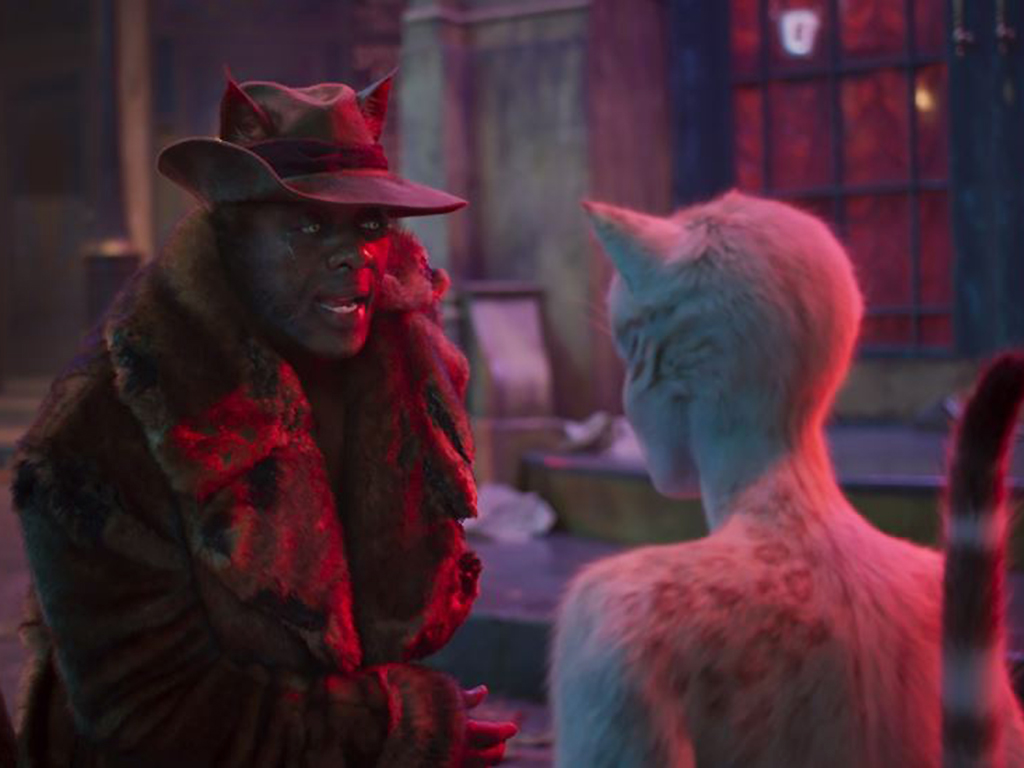The Force was a little less strong with Star Wars: The Rise of Skywalker. J.J. Abrams’ Skywalker finale couldn’t match its recent predecessors on opening weekend, but it still amassed a US$175.5 million debut that ranked as the third-largest weekend of the year.

The Rise of Skywalker came in with worse reviews than any Star Wars movie except for 1999’s The Phantom Menace, which famously heralded the debut of Jar Jar Binks. The Rise of Skywalker has a 57 per cent fresh score on Rotten Tomatoes. Audiences, too, were relatively lukewarm to the movie, giving it a B+ CinemaScore.
That response may have muted what could have been a record-setting weekend. While Disney had cautiously estimated about a US$165 million opening, analysts had pegged The Rise of Skywalker for around US$200 million.
The Rise of Skywalker pulled in US$374 million worldwide, according to studio estimates Sunday. The film was especially lacklustre in China, where all Star Wars films have struggled. It grossed US$12.1 million in the world’s second-largest movie marketplace.
Though it proved divisive with fans, 2017’s The Last Jedi, directed by Rian Johnson, opened with US$220 million and ultimately grossed US$1.3 billion worldwide. Abrams’ own The Force Awakens set a then-record in 2015 with a US$248 million debut and sold more than US$2 billion in global tickets.

With the coming holiday period, Rise of Skywalker is poised to dominate the year’s most lucrative week of moviegoing. Cathleen Taff, distribution chief for Disney, called it a great start.
“With critics, we’ve seen that our movies have received lower scores than not but that they continue to do business because they’re great quality movies for the moviegoer,” said Taff. “Audiences are generally responding really positively to the film.
“We know that people are very passionate about Star Wars and have very strong opinions about it. And we’re fine with that,” added Taff. “We think it’s inspiring to see so many people who want to prompt a discussion around a film.”
Such expectations did not await Tom Hooper’s adaptation of Andrew Lloyd Webber’s Cats. The much-ridiculed big-screen musical, featuring infamous “digital fur technology,” scratched out just US$6.5 million in ticket sales, sending Mr. Mistoffelees (and Universal Pictures) home licking their wounds.

Get daily National news
The US$100 million production, featuring an ensemble including Jennifer Hudson, Judi Dench, James Corden, Idris Elba, Ian McKellen and Taylor Swift, came in behind projections and opened in a distant fourth place. The movie drew an 18 per cent fresh score on Rotten Tomatoes and a C+ CinemaScore from audiences.
“Even modest opening in this extraordinary lucrative corridor can prove very kind to films,” said Jim Orr, chief of distribution for Universal. He anticipates the film’s strongest demographic — older moviegoers — will be most available over the holidays. “Our scores from those who are 55 and up are very good and very encouraging.”

Holdovers Jumanji: The Next Level (US$26.1 million in its second weekend) and Frozen 2 (US$12.3 million in its fifth weekend) both surpassed Cats.
Rise of Skywalker culminated a tumultuous period in Star Wars, finishing off both a trilogy and nine-film cycle begun 42 years ago by George Lucas. In 2012, Disney acquired Lucasfilm for US$4 billion. While its stewardship of Star Wars has drawn enormous box-office proceeds, The Rise of Skywalker had its work cut out in trailing both the much-debated The Last Jedi and the 2018 dud Solo: A Star Wars Story.
In November, Disney chief executive Bob Iger told investors that Star Wars will go “into a hiatus” after Rise of Skywalker. The next Star Wars movie, which is to be set outside the Skywalker saga, isn’t scheduled for release until 2022. Game of Thrones makers David Benioff and D.B. Weiss recently pulled out of planned Star Wars trilogy.
Lately, Star Wars has also been a hit on the small screen, too. The Mandalorian helped launch the Disney+ streaming service. To make way for Rise of Skywalker, the latest episode of The Mandalorian debuted on Wednesday instead of Friday.
But Disney can still make considerable demands on theatres for Star Wars films. Disney charges theatres 65 per cent of ticket sales, or about 10 percentage points more than standard, for Star Wars releases and requires a run of four weeks.
Paul Dergarabedian, senior media analyst for Comscore, said Rise of Skywalker could only be painted by others as a disappointment because of the franchise’s and the studio’s extraordinary track record. The film will likely become Disney’s seventh US$1-billion release of the year (a record) and give the studio seven of the top 10 films of the year.

“It’s time to devote a lot of attention to the streaming environment for Star Wars and then come back with a vengeance,” said Dergarabedian. “There’s a lot of lessons to be learned and certainly from this latest instalment.”
Rise of Skywalker helped improve the shortfall at the box office compared to last year, but ticket sales are still running 4.6 per cent behind 2018, according to Comscore.
In its national expansion, the Lionsgate Fox News drama Bombshell underperformed expectations with US$5.1 million in 1,481 theatres. Rian Johnson’s Last Jedi followup, the starry whodunit Knives Out, continues to do strong business for Lionsgate. After US$6.1 million in its sixth weekend, it has grossed US$185.6 million globally.
Estimated ticket sales for Friday through Sunday at U.S. and Canadian theatres, according to Comscore. Where available, the latest international numbers for Friday through Sunday are also included.
1. Star Wars: The Rise of Skywalker, US$175.5 million (US$198 million international)
2. Jumanji: The Next Level, US$26.1 million (US$32.6 million international)
3. Frozen 2, US$12.3 million (US$31.6 million international)
4. Cats, US$6.5 million (US$4.4 million international)
5. Knives Out, US$6.1 million
6. Bombshell, US$5.1 million
7. Richard Jewell, US$2.6 million
8. Queen & Slim, US$1.9 million
9. Black Christmas, US$1.8 million
10. Ford v Ferrari, US$1.8 million










Comments
Want to discuss? Please read our Commenting Policy first.